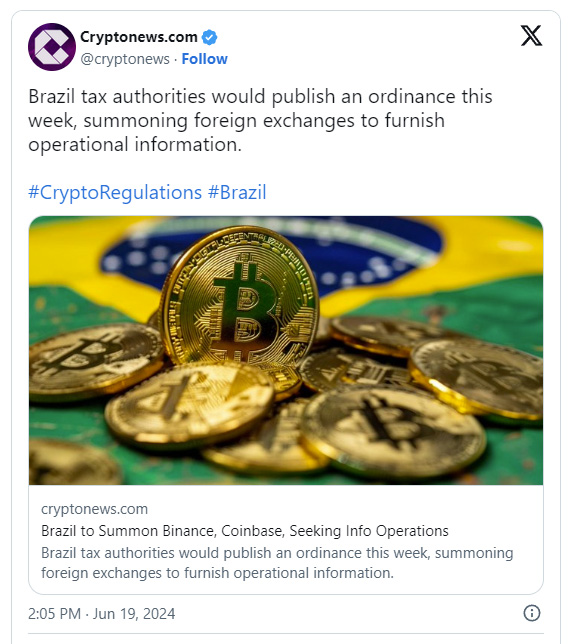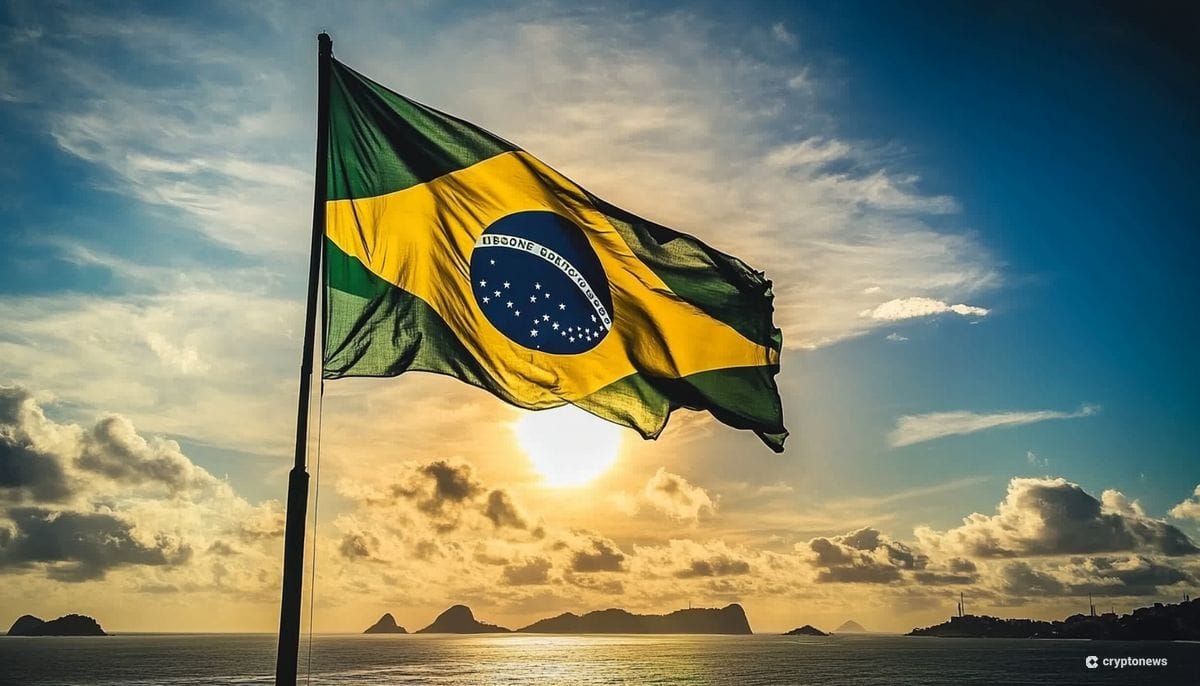Binance agreed to pay $1.76 million to the Brazilian authorities to settle an ongoing investigation.
A noteworthy development is that Binance has consented to settle an ongoing investigation into its unauthorized derivatives trading in Brazil by paying the Brazilian Securities and Exchange Commission (CVM) 9.6 million reais ($1.76 million).
With this, the more than four-year-long regulatory standoff between Brazil’s financial authorities and Binance, the largest cryptocurrency exchange in the world, comes to an end.
Even though Binance has started operating again, the settlement demonstrates the exchange’s ongoing difficulties with international regulatory agencies, especially as it tries to comply with stricter local laws and an increasingly complicated international legal system.
Binance Agreed to Settlement: What Does This Mean to Brazil?
After a lengthy investigation that started in June 2020 after the Brazilian regulator accused Binance of providing derivatives trading without the necessary authorization, Binance and the CVM reached a settlement this week.
Initially, the CVM had threatened Binance with daily fines of 1,000 reais for non-compliance and ordered Binance to immediately stop all such activities.
Binance made multiple attempts to reach a settlement over the following four years, including one in August 2023 for 2 million reais ($370,000), which the CVM rejected as being insufficient.
The case was not closed until February 2024 when a new proposal worth 9.6 million reais was made and approved.
Binance has consented to stop all derivatives trading in Brazil as part of the settlement; the CVM views these transactions as securities offerings.
Despite these difficulties, Binance continues to dominate the global cryptocurrency market and adjusts its business practices to comply with various international laws.
The recent research from Kaiko, which discovered that the volume of cryptocurrency trading in Brazil denominated in Brazilian real exceeded $6 billion in just the first four months of this year, further complicates Binance’s position.
This data indicates that significant trading activity is still taking place in spite of regulatory pressure and highlighted the high stakes involved in Brazil’s cryptocurrency market.
This continued interest can mean that the exchange considers Binance’s settlement to be an inevitable expense of operating in a profitable and expanding market.
Binance’s Strategic Move Amid Regulatory Hardships
The roots of Binance’s regulatory troubles in Brazil can be traced back to last year, when the CVM issued an order for Binance to stop offering derivatives trading services, citing the lack of a proper license.

The CVM viewed these services as securities requiring registration and adherence to local laws.
Due to Binance’s reluctance to follow this directive, the exchange was able to continue operations in the nation during a protracted standoff with the regulator.
As previously stated, Binance made its first settlement offer of 2 million reals in August of 2023.
Scholarships for Brazilian students interested in studying crypto regulation were part of the offer, but the CVM found the amount insufficient considering the severity of the infractions.
According to the regulator, Binance was engaging in actions that ought to have been closely supervised and carried out with harsher penalties.
According to a statement published on August 14 by the CVM, after continued negotiations, Binance finally presented a new proposal in February 2024.
The regulatory dispute was essentially resolved when this 9.6 million reais proposal was approved following discussions with the CVM’s Term of Commitment Committee (CTC).
However, this settlement does not end Binance’s regulatory challenges; the exchange remains scrutinized in multiple jurisdictions worldwide.
Notably, Binance resumed operations in India following comparable penalties and accusations levied by Indian authorities. The URL’s unbanning and partial operation in India after the fine was paid suggests that Brazil might also grant Binance access to continue operations legally.















Leave a Reply